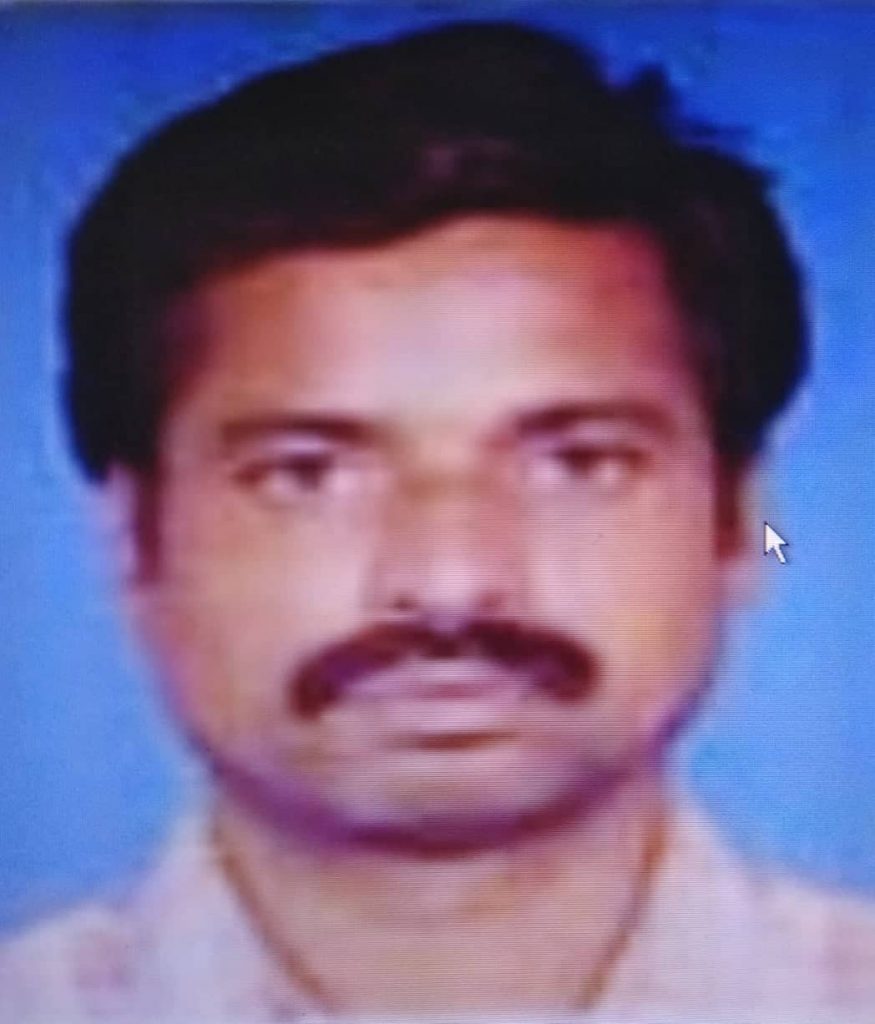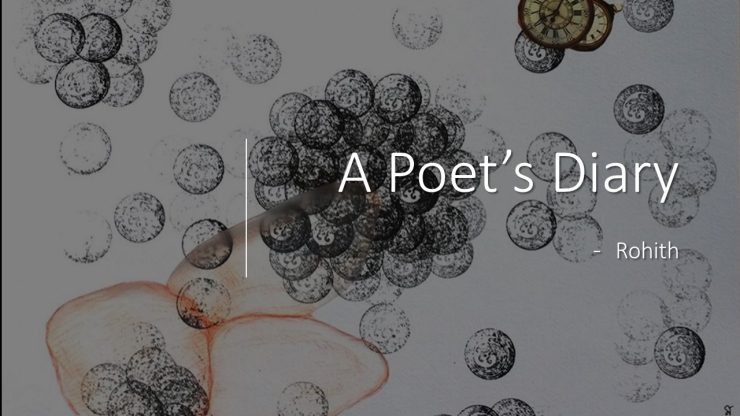1
In a world that is deceptively apparent as ours, we tend to have a sense of fascination for writers (or humans) who lost their way in history; as it happened with such writers as Kafka or Pessoa, who, in their afterlives, ghosted the world of letters; Kafka remained broadly unknown till his death. He asked his friend Max Brod to burn all his manuscripts in his last days. Pessoa died leaving a great oeuvre of his multiple lives (heteronyms) in a trunk-box only to be recovered after his death. This sense of rejection of time and history probably gives these writers a sense of godly immortality , and to their work an immaculate divinity. Strangely enough, as it happens with any mortal, time takes over their lives: death happens despite their zeal for timelessness, and their lives becoming susceptible to history, derive a context.
2
It was in August of 2001 that he was last seen by his friend B. Ajay Prasad. He disappeared. (“Never, when I bade him goodbye, did I dare to turn back and look at him; I was afraid I would see him vanish, dissolved in air.” – Pierre Hourcade, Pessoa’s associate in his final years, in an article about Pessoa he published after Pessoa’s death) It has been only few days since everyone discovered that he died about 6 years ago. He committed suicide. He walked into a lake leaving his footwear and a letter on the bank. What’s in that letter is unknown. A poem, maybe? He used to publish poems in literary magazines in 1990 – 2000 (?) He wrote stories. He wrote a novel with Icarus as a lead character. He loved movies of Pasolini and Angelopolus. He did centering work during his time in Hyderabad. He was in the naxalite movement in jungles before that. The only photo of his available to us is a blurred one. A crafty moustache, combed hair and hazy eyes looking straight. And what’s left of his life now are these poems and the memories of those who were associated with him back in the 90s (God knows how many of them are alive!)
3
 Chitrakonda Gangadhar remained reticent all his life. He offered his everything to write poems. He is shapelessly present in his poems, in the form of a melancholia – the same melancholia that once devoured him inside-out shapelessly. He adopted a few images/words/names (like winter, bloody flesh, ruins etc.) as signboards that, as the unassuming reader reads, take her into a kaleidoscopic world of infinities, chaos, relationships, betrayals, losses, stars and absences. His poems take place in a world that is perpetually wintry. There is a violence in his poems that is as unforgiving as reality itself. The poems smell of dead leaves. He is a vagabond forever lost in the cycle of arrivals and departures.
Chitrakonda Gangadhar remained reticent all his life. He offered his everything to write poems. He is shapelessly present in his poems, in the form of a melancholia – the same melancholia that once devoured him inside-out shapelessly. He adopted a few images/words/names (like winter, bloody flesh, ruins etc.) as signboards that, as the unassuming reader reads, take her into a kaleidoscopic world of infinities, chaos, relationships, betrayals, losses, stars and absences. His poems take place in a world that is perpetually wintry. There is a violence in his poems that is as unforgiving as reality itself. The poems smell of dead leaves. He is a vagabond forever lost in the cycle of arrivals and departures.
4
As I, a 24 year old cosmic-character with an ever looming doubt of his own existence in a world where fiction and real are blended into a singular texture of images, sounds and smells, read Chitrakonda Gangadhar’s poetry: I meet a stranger/strangers with whom I would share my peg of alcohol and talk all night on the terrace, in the freezing darkness of winter, and rave about stars, lost lovers, time-travel, oppression, exploitation and the meaninglessness of life. And then, after all the topics get over, we shall read our poems out loud to one another and to the galaxies above us. In the end, when we have reached the ends of language, we just fall silent. The silence that’s least awkward and most comfortable of all silences.
5
The poems may instate an image of the writer. The image of Chitrakonda Gangadhar is that of a lean traveler lost in an endless desert on a cold night. He keeps trudging his way forward through revolting sand and negating winds. His blood frozen. His bones crushed to pulp. His flesh wrinkled, putrefied. He is walking towards his own death, reflecting, writing poems in the black night’s air. His stomach curved inwards, growling with hunger. His eyes are sunk in the prominent skeletal orbits.
A wayfarer straying away from time. A lone pilgrim of sadness.
6
He wrote a novel with Icarus as a protagonist, a friend said. The over-ambitious Icarus who flew towards Sun with his wax wings; The wax melted and Icarus fell into the sea : that reminded me of a poem William Carlos Williams wrote called ‘Landscape with the Fall of Icarus” :
“According to Brueghel
when Icarus fell
it was spring
a farmer was ploughing
his field
the whole pageantry
of the year was
awake tingling
near
the edge of the sea
concerned
with itself
sweating in the sun
that melted
the wings’ wax
unsignificantly
off the coast
there was
a splash quite unnoticed
this was
Icarus drowning”
The ‘splash quite unnoticed’ is what Chitrakonda Gangadhar is, maybe. What do we know of what was unnoticed now? What do we know of Icarus?
————
The winds from another galaxy
Who knows the heart of a bidi? Who is in tune with it?
Who loves it so much?
The ones in the prison for a lifetime,
The spoiled ones thrown away by life.
Their morning is a ground of decayed lungs
The ground that glows in the colour of rose. After their death
all their lungs land in a planet that’s beyond this galaxy.
In that world of smooth winds
they become part of a civilisation of lungs.
That’s a civilisation that no telescope
of any rich country on this planet can ever discover.
– Chitrakonda Gangadhar (tr from Telugu)
1
On this earth, in this corner
of a sleepless night
I stand beside the tree
of hunger
smoking in peace.
The leaves curled up to winter rain
in their timeless silence.
I fail to understand
their silence.
2
I was not here about
hundred years ago.
Neither was my father.
But my father’s father
was here,
with alcohol and meat.
It was winter on that night too
he was in twenties like me.
——
1
Friends took farewell
and left.
But the weak skeletons of their
conversations
are left behind-
long after their deaths.
2
The ones with ruined souls
think
their bodies are to be buried
in
magnificent graveyards.
They dream of large gatherings
behind their corpses
on their funeral.
But the real graveyard is
their hearts,
dispassionate, all alone.
——-









Rohith,
Thanks for the write up and the translations. Remotely related though, I’m reminded of W.H Auden’s “Musee des Beaux” reading that poem about Icarus.
Here’s the stanza;
In Breughel’s Icarus, for instance: how everything turns away
Quite leisurely from the disaster; the ploughman may
Have heard the splash, the forsaken cry,
But for him it was not an important failure; the sun shone
As it had to on the white legs disappearing into the green
Water, and the expensive delicate ship that must have seen
Something amazing, a boy falling out of the sky,
Had somewhere to get to and sailed calmly on.
అభినందనలు, భాగరాశారు. అనువాదం, బాగుంది. !
ఈ సినబాబుసికాకోల్ (ఇది గంగాధర్ ఇమెయిల్ ఐడి) ని చివరిసారి చూసింది 2011లో. (2001 కాదు చిన్న సవరణ)
2011 లోనే ఉప్పల్ లో దిగిన ఆ ఫొటో, ఎక్కడా దొరక్క చివరికి అతని బ్యాంక్ అకౌంట్ ఆధారంగా కంప్యూటర్ మానిటర్ నుంచి ఫోనులోకి లాగిన ఆ స్నాప్, అతడి సునిశిత సుకుమారమైన కవళికలు కఠినంగా మారిపోయి మిగిలిన ఒక రఫ్ లుక్.
The article is a good attempt.
Thank you.
I stand corrected. Thank you so much for clarification.
After reading this I remembered Bandi Gopal reddy known as BANGOREY, who walked in to the waters of Bhakra dam. He did great research on KANYASULKAM, VEMANA, KATTAMANCHI RAMALINGAREDDY, C.P BROWN etc etc.